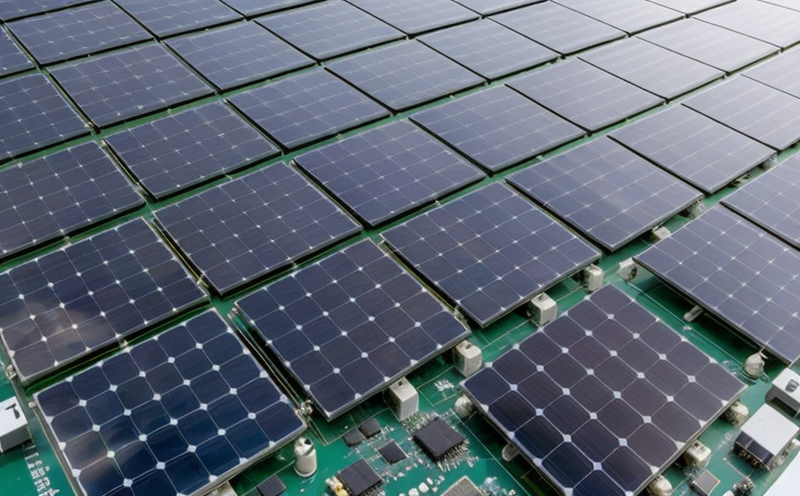IEEE 2800 Performance Testing for Bulk Power Renewable Resources
The IEEE P2800 Working Group has developed a consensus standard to evaluate and improve performance testing methodologies specifically tailored for bulk power renewable resources. This service ensures that the quality, reliability, and safety of large-scale renewable energy systems are met or exceeded by adhering to stringent international standards.
Bulk power renewable resources encompass wind turbines, solar photovoltaic farms, hydroelectric plants, and other similar installations that contribute significantly to grid electricity supply. The IEEE 2800 standard provides a structured approach for testing the performance of these systems under various operational conditions, from initial design phases through to post-installation evaluation.
The service involves a comprehensive suite of tests designed to assess electrical characteristics, mechanical integrity, environmental resistance, and overall system efficiency. It includes both laboratory-based simulations as well as field deployments where applicable. The goal is to identify potential weaknesses early in the lifecycle of renewable energy projects so they can be addressed before becoming operational issues.
Our team of experts uses cutting-edge equipment and methodologies recommended by IEEE 2800, ensuring accurate results that meet all relevant regulatory requirements. By leveraging our advanced facilities, we offer a holistic service covering every aspect of the testing process—from sample preparation to final report generation. This ensures clients receive reliable data they can use confidently when making decisions about their renewable energy projects.
One key advantage of this service is its ability to provide insights into how different components interact within the broader context of an entire renewable energy installation. Understanding these interactions helps optimize design choices and improve overall performance, leading to more efficient systems capable of meeting current and future demands while minimizing environmental impact.
The IEEE P2800 standard emphasizes continuous improvement through regular updates based on new technologies and industry practices. Our laboratory adheres strictly to this philosophy by staying abreast of developments in both the field of renewable energy technology and testing methodologies. This commitment ensures that our clients benefit from state-of-the-art techniques and tools throughout their projects.
Applied Standards
| Standard | Description |
|---|---|
| IEEE P2800-2019 | A consensus-based standard defining best practices for testing the performance of bulk power renewable resources. |
| IEC 61400-12-1 | International Electrotechnical Commission's standard covering wind turbine generator systems, including electrical performance tests. |
The IEEE P2800-2019 is the primary standard used in our testing process, providing detailed guidelines on various aspects of renewable energy system evaluation. Additionally, we incorporate relevant sections from IEC 61400-12-1 where applicable to ensure comprehensive coverage.
Customer Impact and Satisfaction
- Early identification of design flaws or operational challenges
- Increased confidence in system performance through rigorous testing
- Potential cost savings due to avoided downtime or repairs
- Better informed decision-making processes leading to optimized designs
Clients often report higher levels of satisfaction after undergoing IEEE 2800 compliance testing because it provides them with clear evidence that their projects meet stringent international standards. This information is invaluable for ensuring regulatory compliance and building investor confidence.
International Acceptance and Recognition
- The IEEE P2800 standard has been adopted by numerous countries as part of their national renewable energy regulations.
- It is widely accepted in academia, industry, and government bodies worldwide for evaluating the performance of large-scale renewable energy installations.
This global recognition underscores the importance placed on accurate and consistent testing methods when assessing bulk power renewable resources. By adhering to these standards, our clients ensure their projects are not only compliant but also leading-edge in terms of technological advancement and environmental responsibility.





